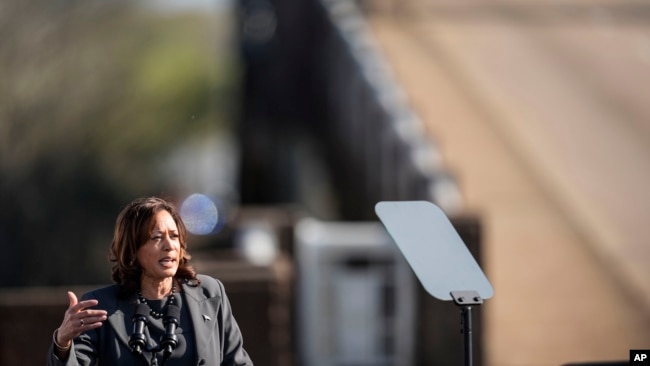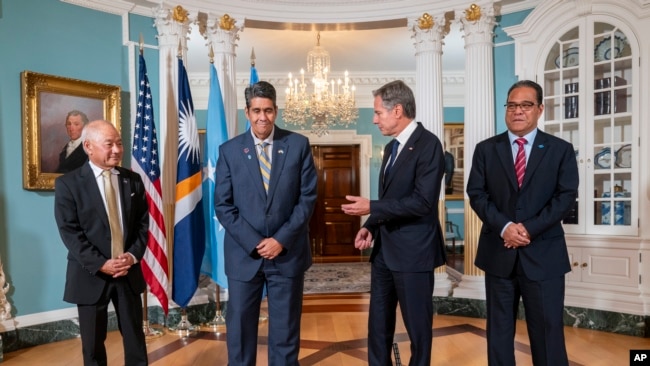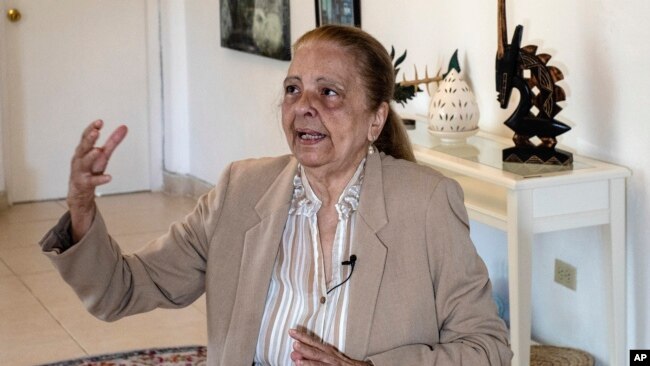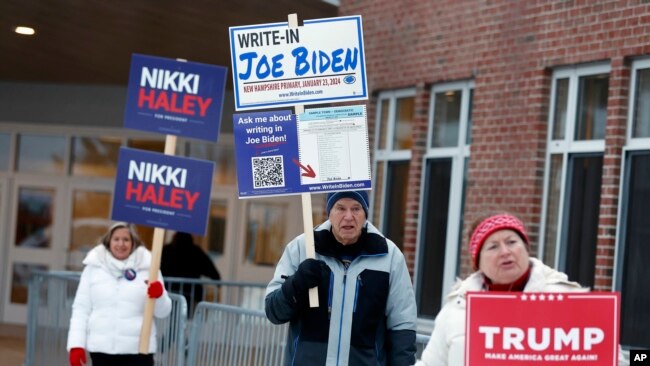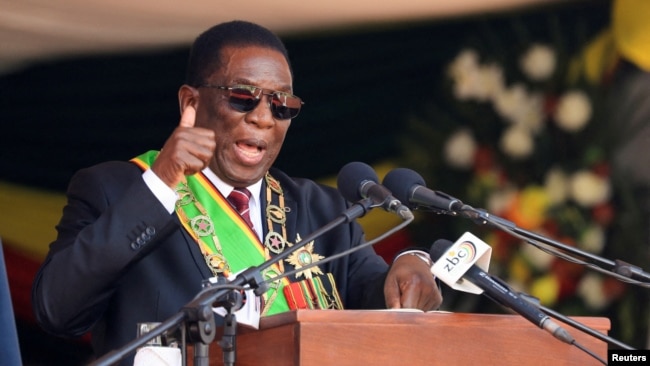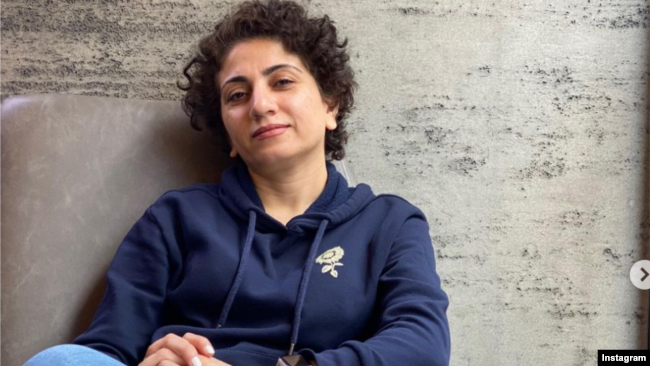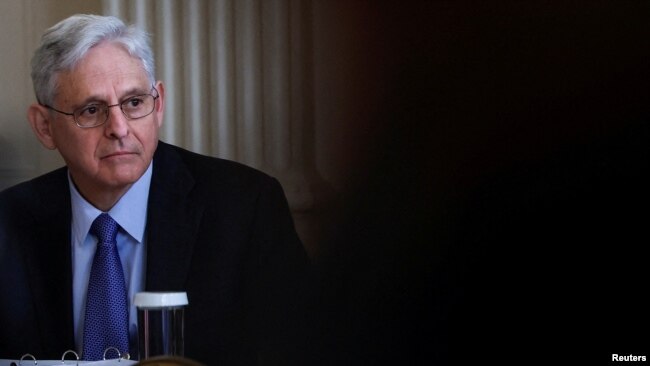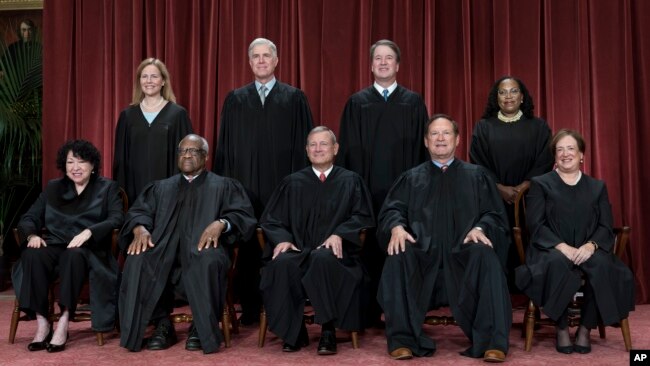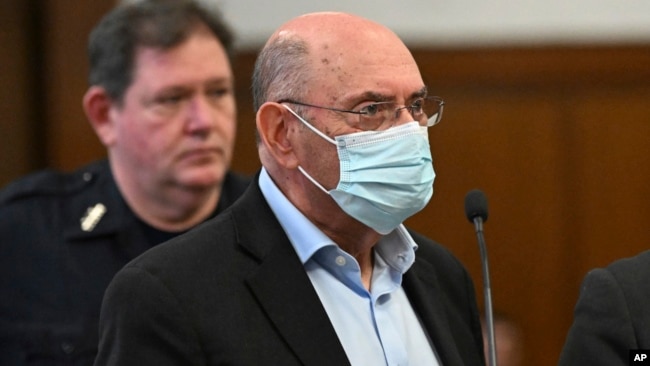“북한 내 권력세습 불만 여론 커져”… 한국 정부, 탈북민 10년 간 면접 결과 공개
Public Discontent in Power Succession in North Korea Grows"... South Korean Government Reveals Results of Ten-Year Interviews for North Korean Refugees
페이지 정보
작성자 김환용 작성일 24-02-06 03:55 댓글 0본문
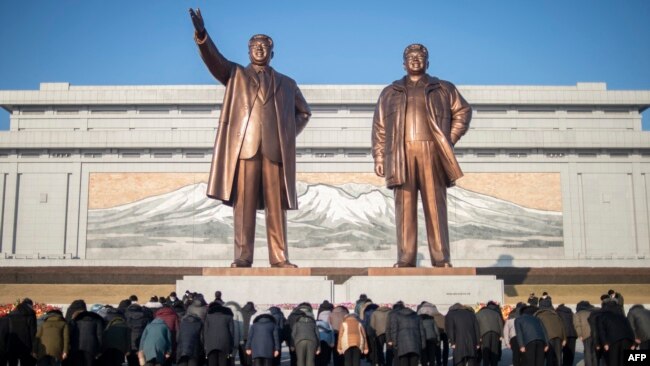
북한 주민들이 지난해 2월 평양 만수대 언덕의 김일성(왼쪽)·김정일 부자 동상을 참배하고 있다. (자료사진)
North Koreans visit the statues of Kim Il Sung (left) and Kim Jong Il on Mansudae Hill in Pyongyang in February last year. (photo)
김씨 일가의 세습지배에 대한 북한 내 불만 여론이 늘어나고 있다는 한국 정부의 조사 결과가 나왔습니다. 또 배급망 붕괴로 북한 주민들이 시장에서 식량을 조달하는 게 일상화된 것으로 나타났습니다. 서울에서 김환용 기자가 보도합니다.
A South Korean government survey has found that there is a growing number of complaints in North Korea about the hereditary rule of the Kim family. It has also become commonplace for North Koreans to procure food from the market due to the collapse of the distribution network. Reporter Kim Hwan-yong reports from Seoul.
한국 통일부는 지난 2013년부터 2022년까지 10년 간 탈북민 6천351명을 심층면접 조사한 결과를 분석한 ‘북한 경제사회 실태 인식보고서’를 6일 발간했습니다.
South Korea's Ministry of Unification published the "North Korea Economic and Social Awareness Report" on the 6th, which analyzed the results of an in-depth interview with 6,351 North Korean defectors for 10 years from 2013 to 2022.
그동안 탈북민 면접조사 결과는 ‘3급 비밀’로 분류해 비공개했는데, 이번에 비밀을 해제하고 보고서로 공개한 겁니다.
In the meantime, the results of the interview with North Korean defectors have been classified as "third class secrets" and kept private, but this time, the secret was released and disclosed as a report.
보고서에 따르면 지난 2016~2020년 북한에서 탈출한 주민 가운데 북한 거주 당시 ‘백두혈통 영도체계가 유지돼야 한다’고 인식한 비율은 29.4%에 그쳤습니다.
According to the report, only 29.4% of residents who escaped from North Korea between 2016 and 2020 recognized that the Baekdu blood leadership system should be maintained when they lived in North Korea.
2000년 이전에 탈북한 이들의 경우 같은 답변이 57.3%였던 것과 비교하면 상당히 줄어든 겁니다.
In the case of North Korean defectors before 2000, the same answer was 57.3% which is a significant decrease.
반대로 ‘탈북 전 백두혈통 영도체계 유지에 반대하는 인식을 가졌다’는 응답은 탈북 시기에 따라 ‘2000년 이전’은 22.7%였지만 ‘2016~2020년’은 53.9%로 늘어났습니다.
On the contrary, 22.7% of the respondents said they had a perception against the maintenance of the Baekdu bloodline leadership system before North Korea's defection, but increased to 53.9% between 2016 and 2020.
통일부는 세습에 대한 탈북민의 불만 정도가 북한 주민 전체의 여론과 차이가 있을 수 있지만 탈북민의 인식 변화 양상을 볼 때 세습의 정당성에 불만을 가진 북한 주민이 늘어나고 있으며, 특히 백두혈통 기반 영도체계에 대한 인식의 균열이 강화되고 있다고 평가했습니다.
The Ministry of Unification said that although the degree of dissatisfaction of North Korean defectors about hereditary succession may differ from the public opinion of the entire North Korean people, more and more North Koreans are dissatisfied with the legitimacy of hereditary succession, especially strengthening the perception of the Baekdu bloodline-based leadership system.
또 만성적 경제난과 배급망 붕괴로 식량을 시장에서 조달하는 주민들의 활동이 일상화된 것으로 나타났습니다.
In addition, chronic economic difficulties and the collapse of the distribution network have made the activities of residents who procure food from the market commonplace.
1990년대 ‘고난의 행군’ 이후로 붕괴한 배급제가 회복되지 않아 2016∼2020년 탈북한 이들의 72.2%는 식량 배급을 받은 경험이 없다고 답변했습니다.
72.2% of those who defected from North Korea between 2016 and 2020 said they had no experience of receiving food rations because the rationing system, which collapsed since the "March of Suffering" in the 1990s, has not recovered.
공식 직장에서 노임과 식량 배급 모두 받지 못했다는 응답은 2000년 이전 탈북민도 33.5%로 꽤 높았지만, 이후에도 계속 상승해 2016~2020년 탈북민은 50.3%를 기록했습니다.
Before 2000, 33.5% of North Korean defectors said they did not receive both labor and food rations in their official workplaces, but they continued to rise after that, reaching 50.3% between 2016 and 2020.
쌀과 강냉이 조달 방법은 ‘종합시장’ 즉 장마당에서 구매했다는 답변이 67.7%에 달했습니다.
67.7% of the respondents said they purchased rice and corn from the "general market," or marketplace.
2016∼2020년 탈북민만 놓고 보면 이런 답변이 71.2%로 더 높았습니다.
In terms of North Korean defectors from 2016 to 2020, 71.2 percent of the respondents were higher.
북한 거주 당시 외국 영상물을 시청했다는 응답은 2000년 이전 탈북민 가운데에선 8.4%에 그쳤으나 2016~2020년 탈북민 중엔 83.3%에 달했습니다.
Only 8.4% of North Korean defectors said they watched foreign videos while living in North Korea before 2000, but 83.3% of North Korean defectors between 2016 and 2020.
주로 본 영상물은 ‘중국 영화와 드라마’'가 71.8%로 가장 많고 ‘한국 영화와 드라마’가 23.1%로 뒤를 이었습니다.
"Chinese movies and dramas" were the most common videos with 71.8%, followed by "Korean movies and dramas" with 23.1%.
시장화와 외부정보 유입에 맞서 김정은 정권의 통제도 강화되는 것으로 조사됐습니다.
The Kim Jong-un regime's control is also strengthened against marketization and the influx of external information.
탈북 전 3~4년 간 사회 감시와 통제 정도에 관해 2011년 이전 탈북민은 50.7%가 강화됐다고 응답했는데, 2012년 이후 탈북민은 같은 응답이 71.5%로 늘어났습니다.
50.7% of North Korean defectors said before 2011 that social surveillance and control had been strengthened over the three to four years before defection, while the same number of North Korean defectors has increased to 71.5% since 2012.
거주지에서 감시와 가택수색을 당한 경험이 있다는 비율도 2000년 이전 탈북민은 16.4%였지만 2016~2020년 탈북민은 51.3%로 급증했습니다.
The percentage of North Korean defectors who experienced surveillance and house searches in their residence also jumped from 16.4% before 2000, to 51.3% between 2016 and 2020.
서울에서 VOA뉴스 김환용입니다.
I'm Kim Hwan Yong from VOA News in Seoul.
Forum
Forum
출처 : VOA한국
댓글목록 0
등록된 댓글이 없습니다.


